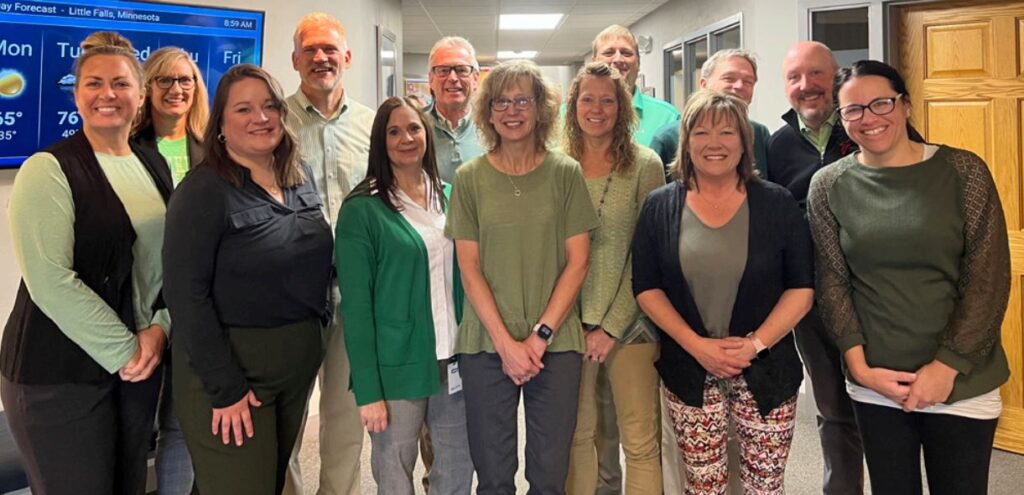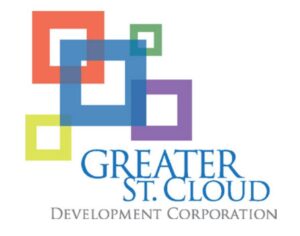St. Cloud Wellbeing Initiative Partner Story

 The St. Cloud Wellbeing Initiative promotes health and wellbeing resources and programs to 17 member organizations in the St. Cloud, Minnesota area through partnership with HealthPartners, the Greater St. Cloud Development Corporation and local employers. In 2021, the initiative decided to support employee mental health and wellbeing during a time of chronic and acute stress due to the COVID-19 pandemic. Focusing on mental health and wellbeing helped the initiative get the ball rolling in all areas of wellness for employees. “The workplace is a place to talk about mental health because it impacts day-to-day functioning,” said Jen Holper from HealthPartners.
The St. Cloud Wellbeing Initiative promotes health and wellbeing resources and programs to 17 member organizations in the St. Cloud, Minnesota area through partnership with HealthPartners, the Greater St. Cloud Development Corporation and local employers. In 2021, the initiative decided to support employee mental health and wellbeing during a time of chronic and acute stress due to the COVID-19 pandemic. Focusing on mental health and wellbeing helped the initiative get the ball rolling in all areas of wellness for employees. “The workplace is a place to talk about mental health because it impacts day-to-day functioning,” said Jen Holper from HealthPartners.
All partners agreed about the importance of having leadership’s support when launching Make It OK. For them, ways leadership demonstrated their support include:
- Dedicating a portion of regular staff meetings to the topic of Make It OK.
- Initial communication about Make It OK came from leadership, such as CEOs or Human Resources, which helped employees feel they had permission to participate in Make It OK opportunities at work.
- Leadership attended Make It OK opportunities alongside staff.
When launching the campaign, organizations took the approach of ensuring employees knew the campaign was a trusted, confidential resource – a safe place to learn and listen. They accomplished this by aligning the campaign with their wellbeing programs, and Employee Assistance Program (EAP) resources, reminding employees of all the mental health resources they had access to with their Workplace Well-being Program through HealthPartners. They also made sure to offer multiple presentation opportunities to accommodate various shifts – one partner finding the lunch hour resulted in the best attendance. Since launching Make It OK, the St. Cloud Wellbeing Initiative has reached over 20,000 employees with Make It OK messaging, trained 33 Ambassadors and over 500 people have attended a Make It OK presentation.
Partners discussed the power of stories, appreciating how readily available Make It OK stories are on the website to be added to emails or inter-office communication. “Make It OK has done such a great job of organizing and making the campaign accessible, whether you’re a very small or very big organization,” Tanya Lindquist-Fleegel with CentraCare shared. Another partner spoke about a leader sharing their experience with mental illness at a staff meeting – not only did this demonstrate leadership’s support of the Make It OK campaign, it also began to normalize talking about mental illness.
When asked about the importance of promoting Make It OK in their organization, there was agreement it is the right thing to do. Kate Bjorge with Initiative Foundation shared, “Mental illness is everywhere so why not get involved with Make It OK? If you can help one person then it is worth it.” Jody Rindfleisch with Altimate Medical Holding, Inc. added, “Why wouldn’t you want to do something? It’s already prepared and laid out, it’s a strong message. If you can impact one person, encourage one person to get help, then it is worth it. We can make such a difference in people’s lives by making it OK to talk about mental health and mental illness.”